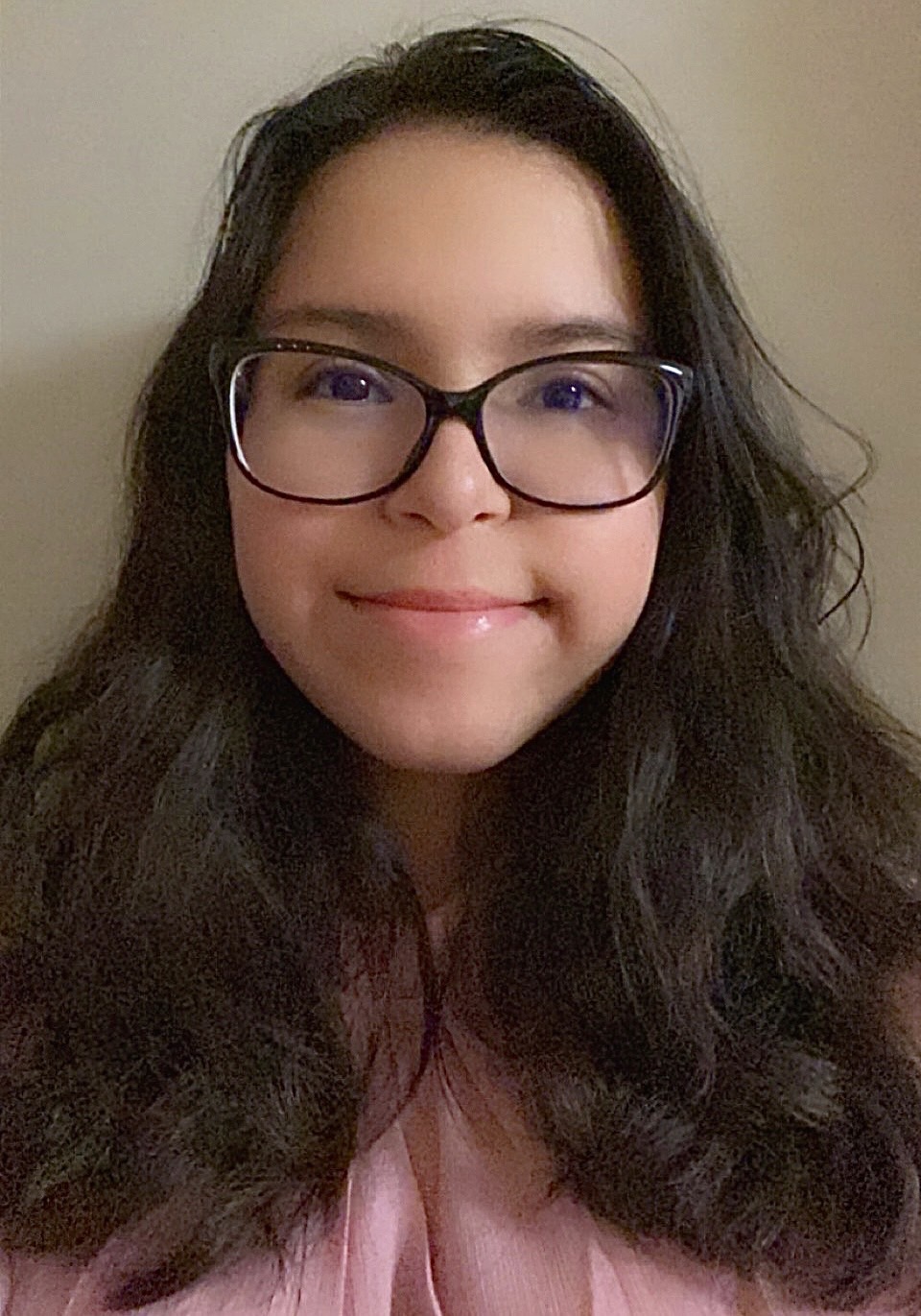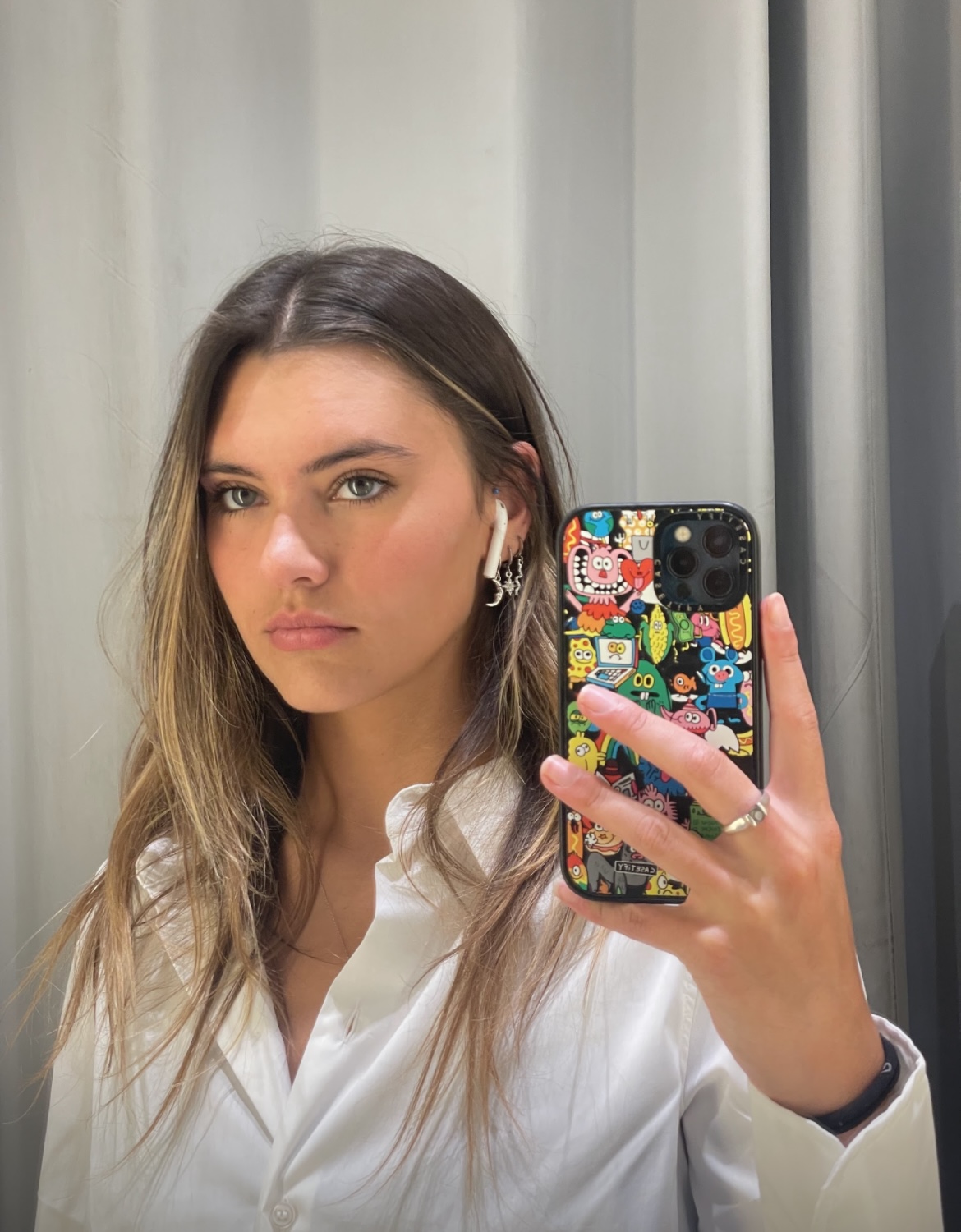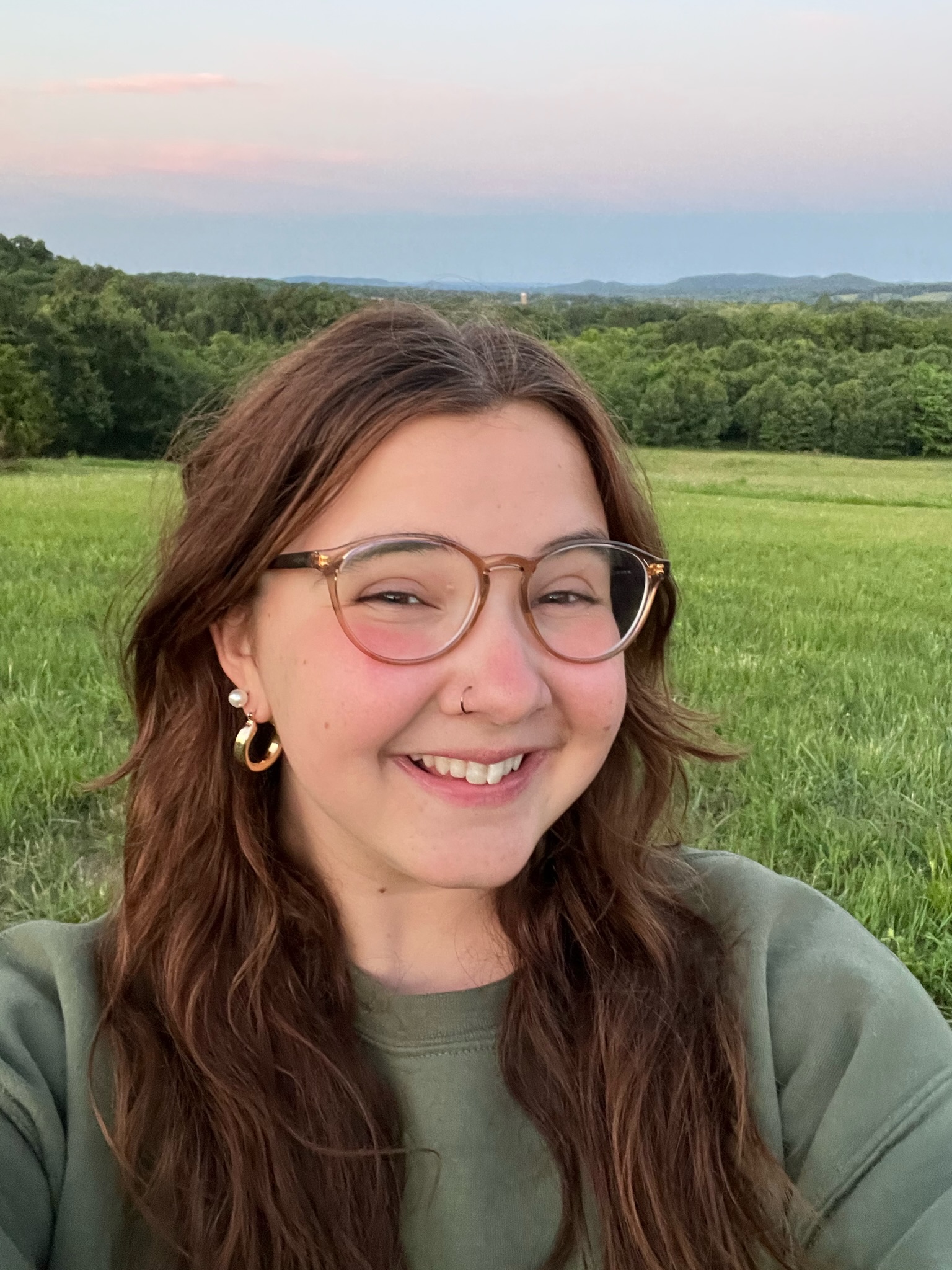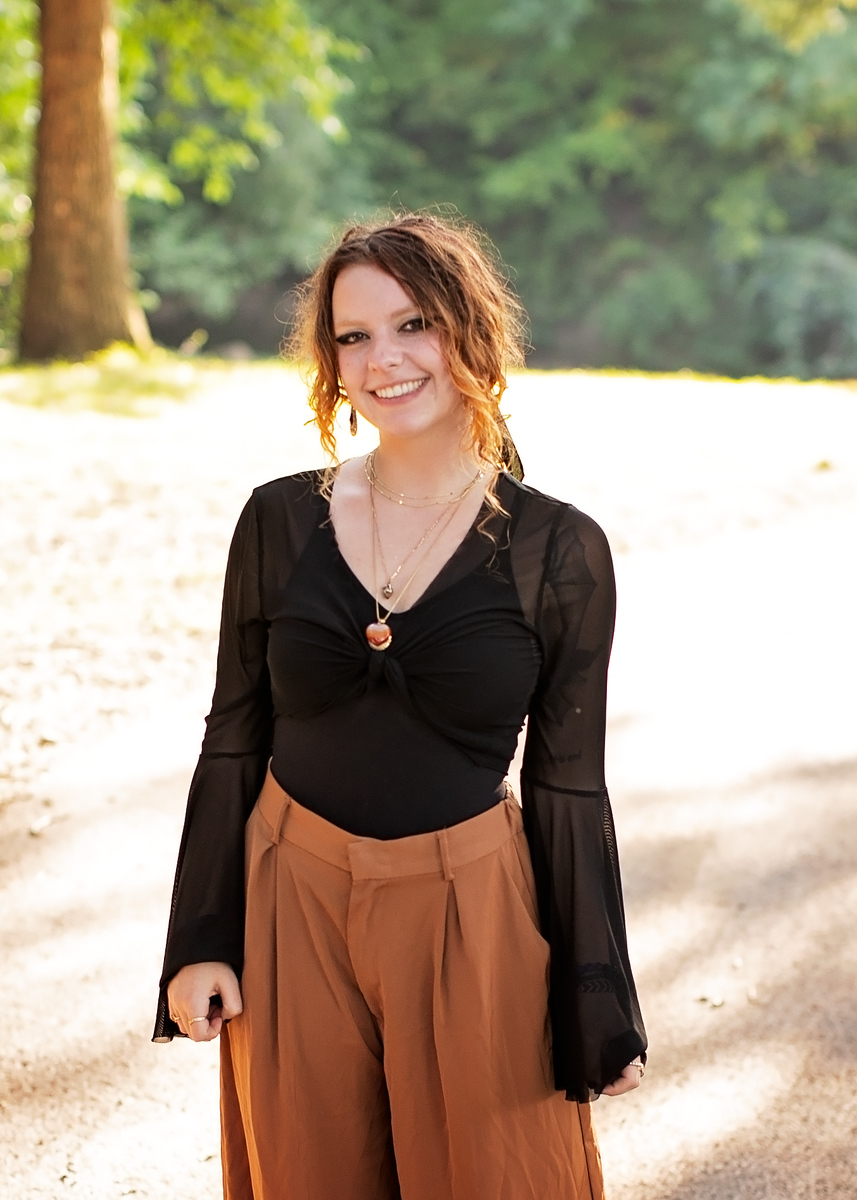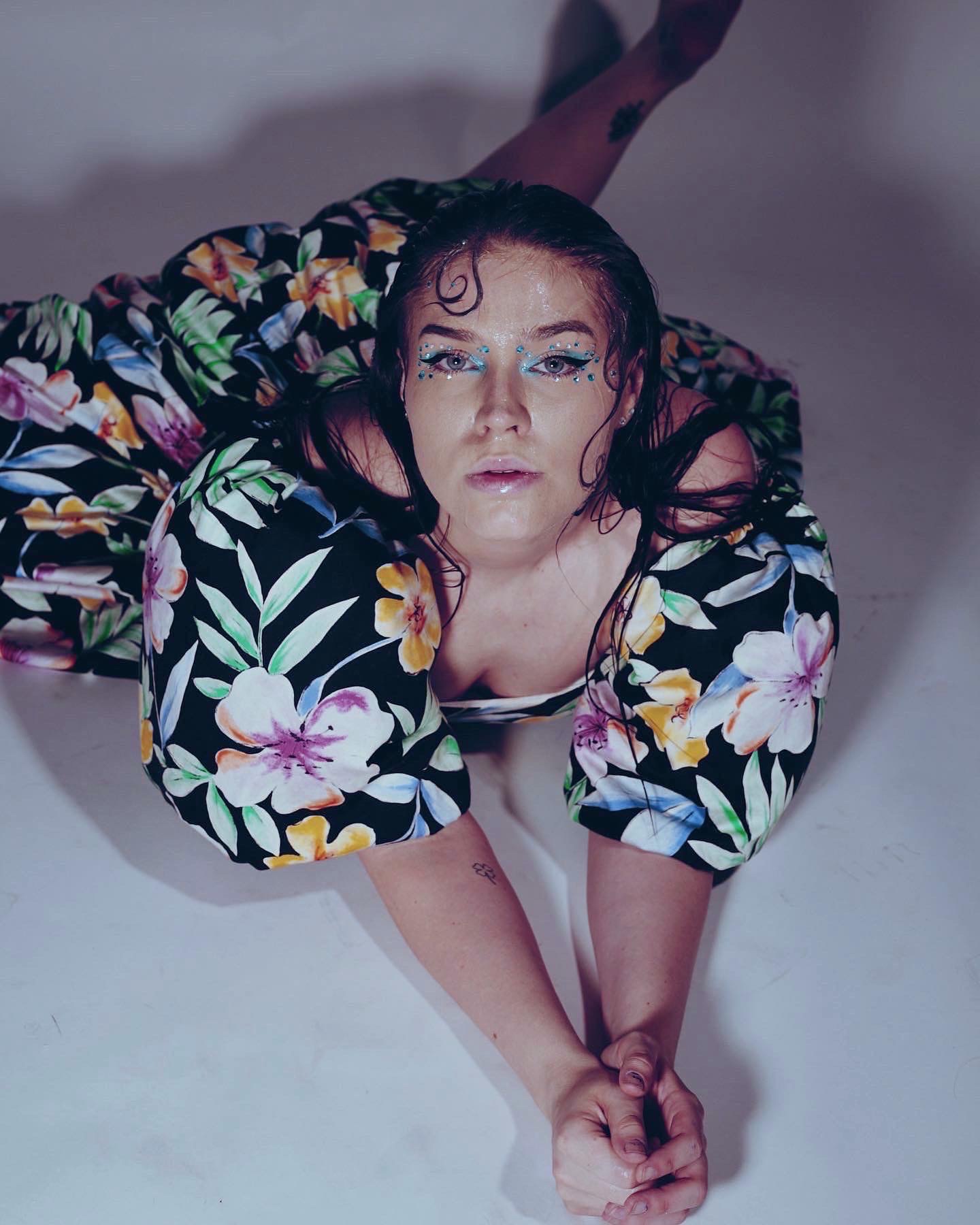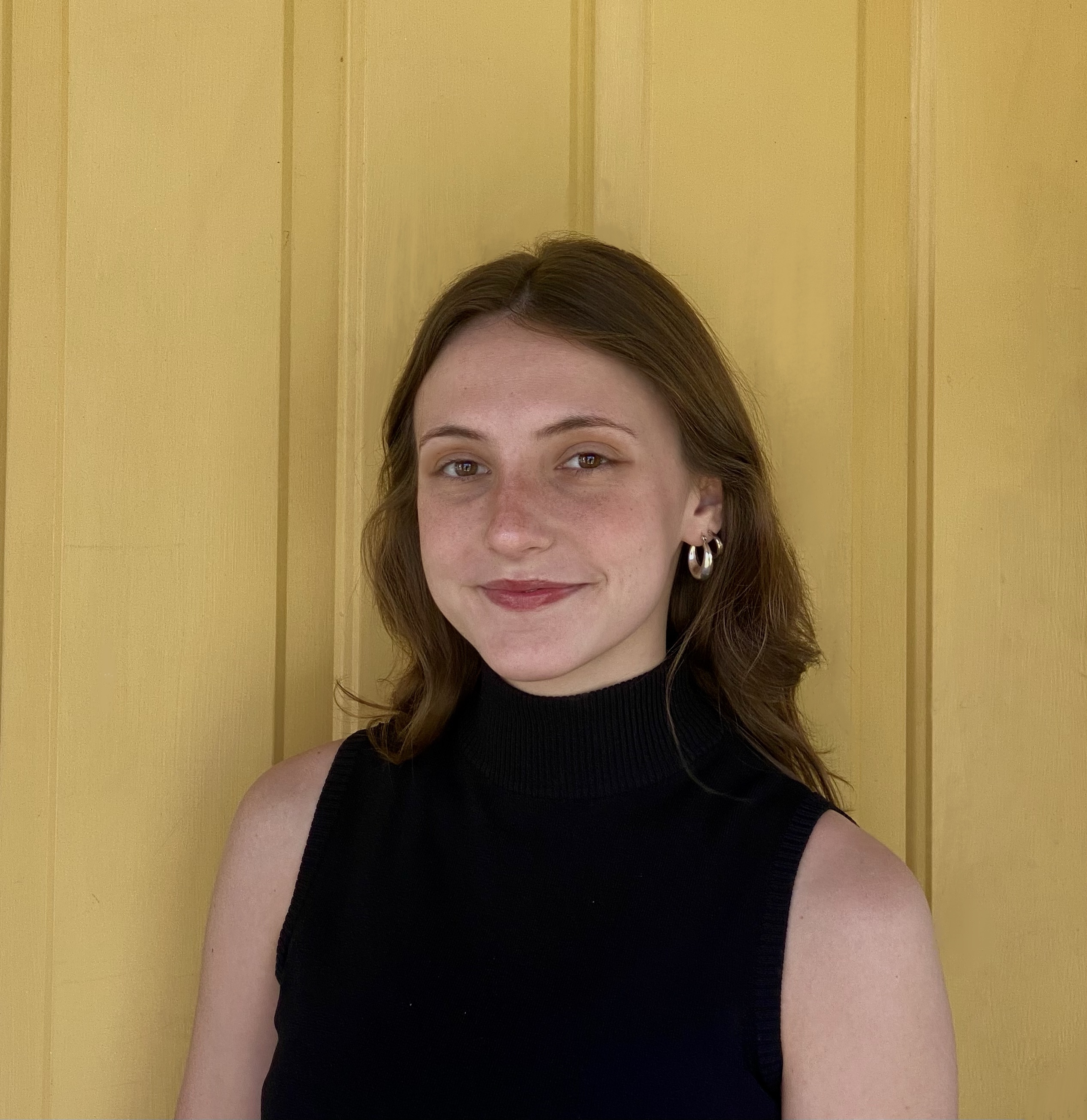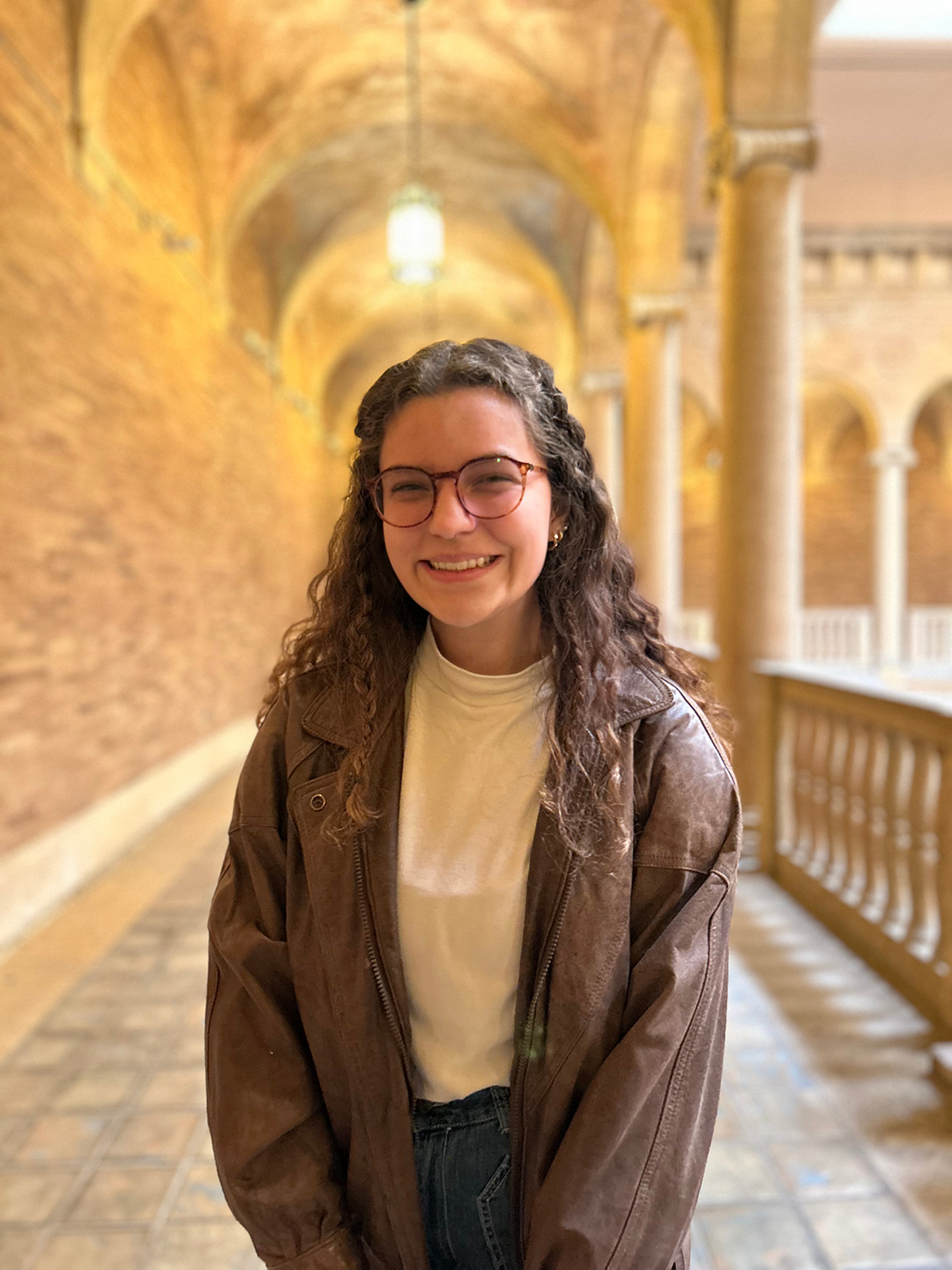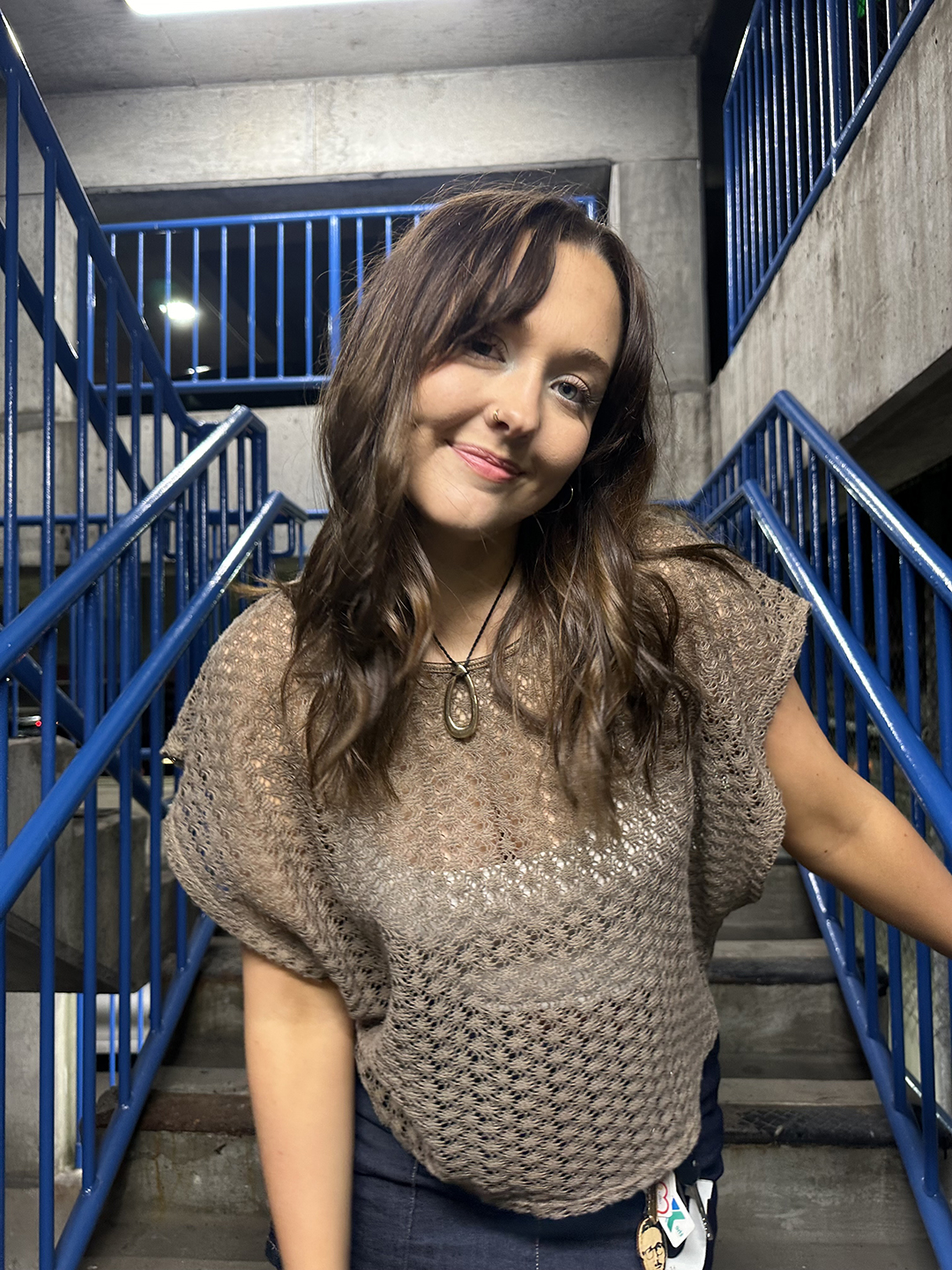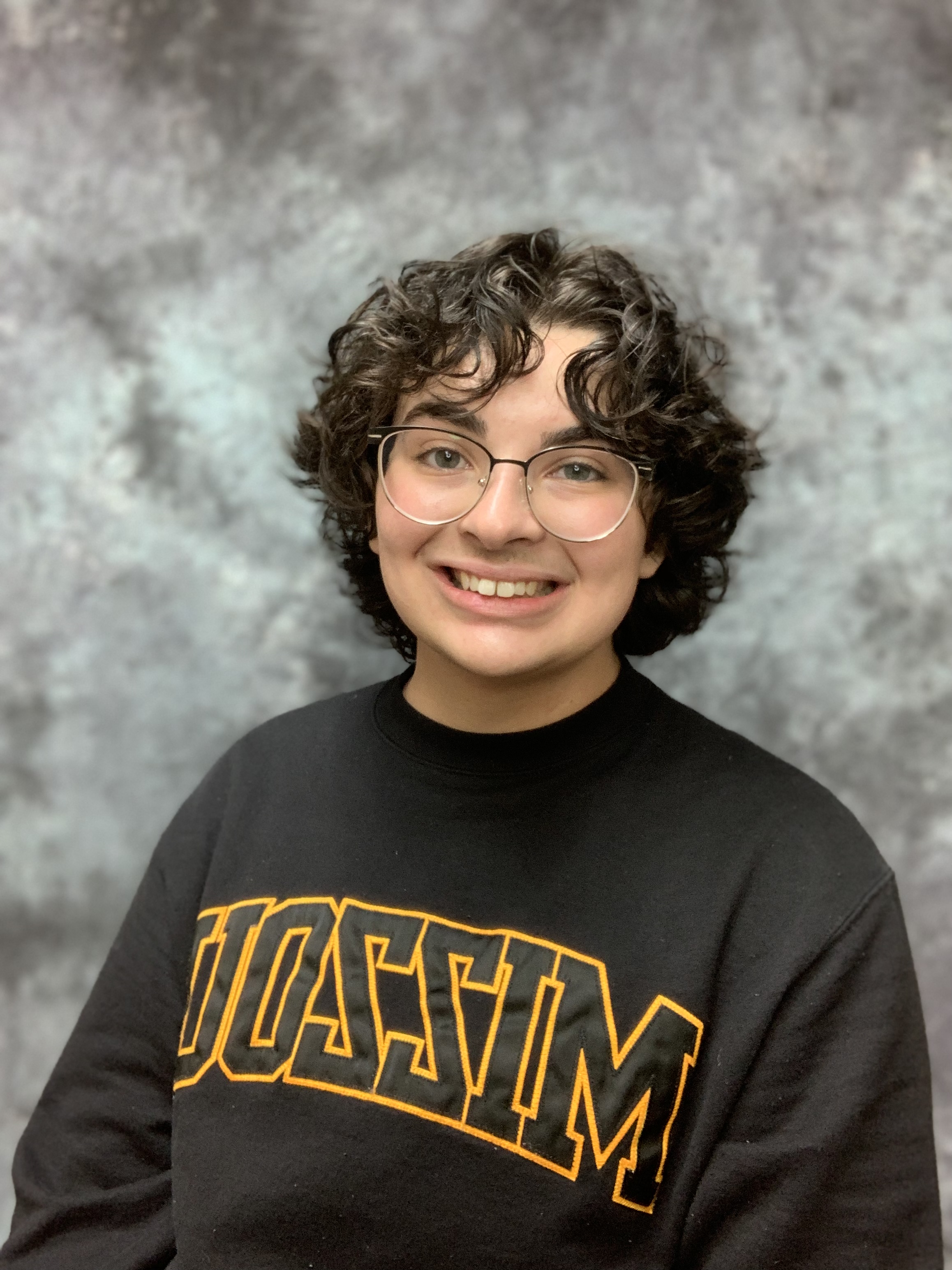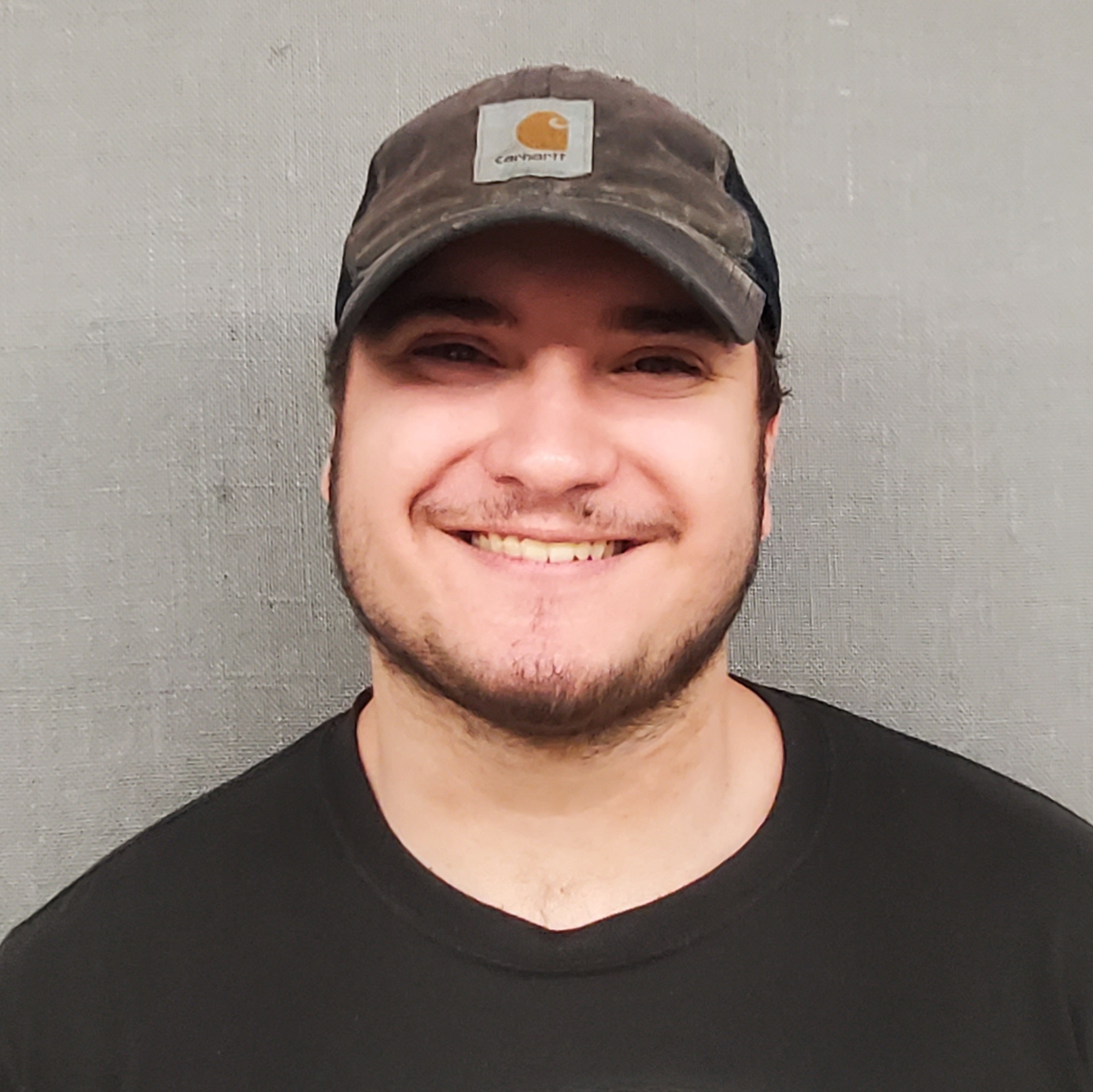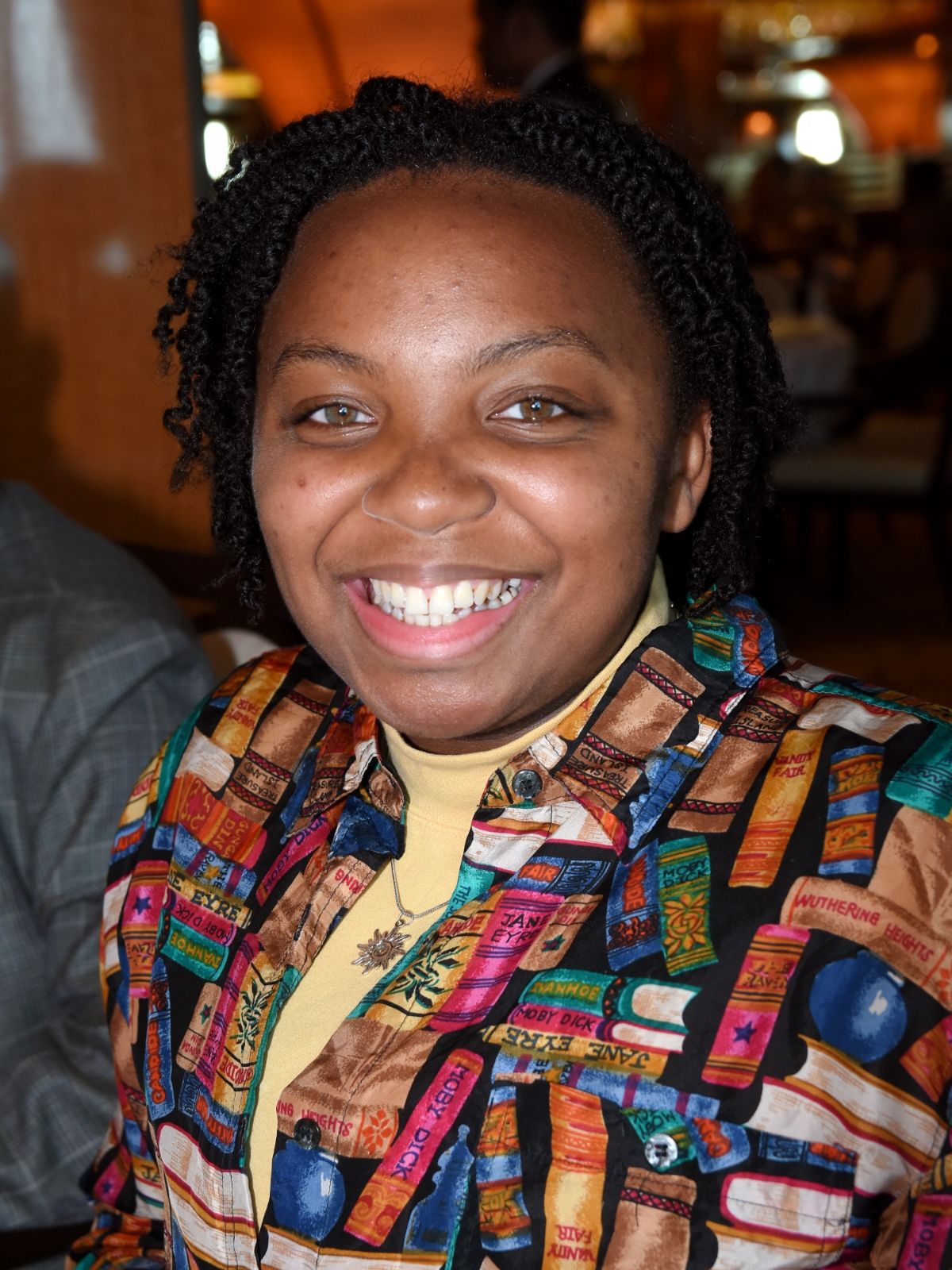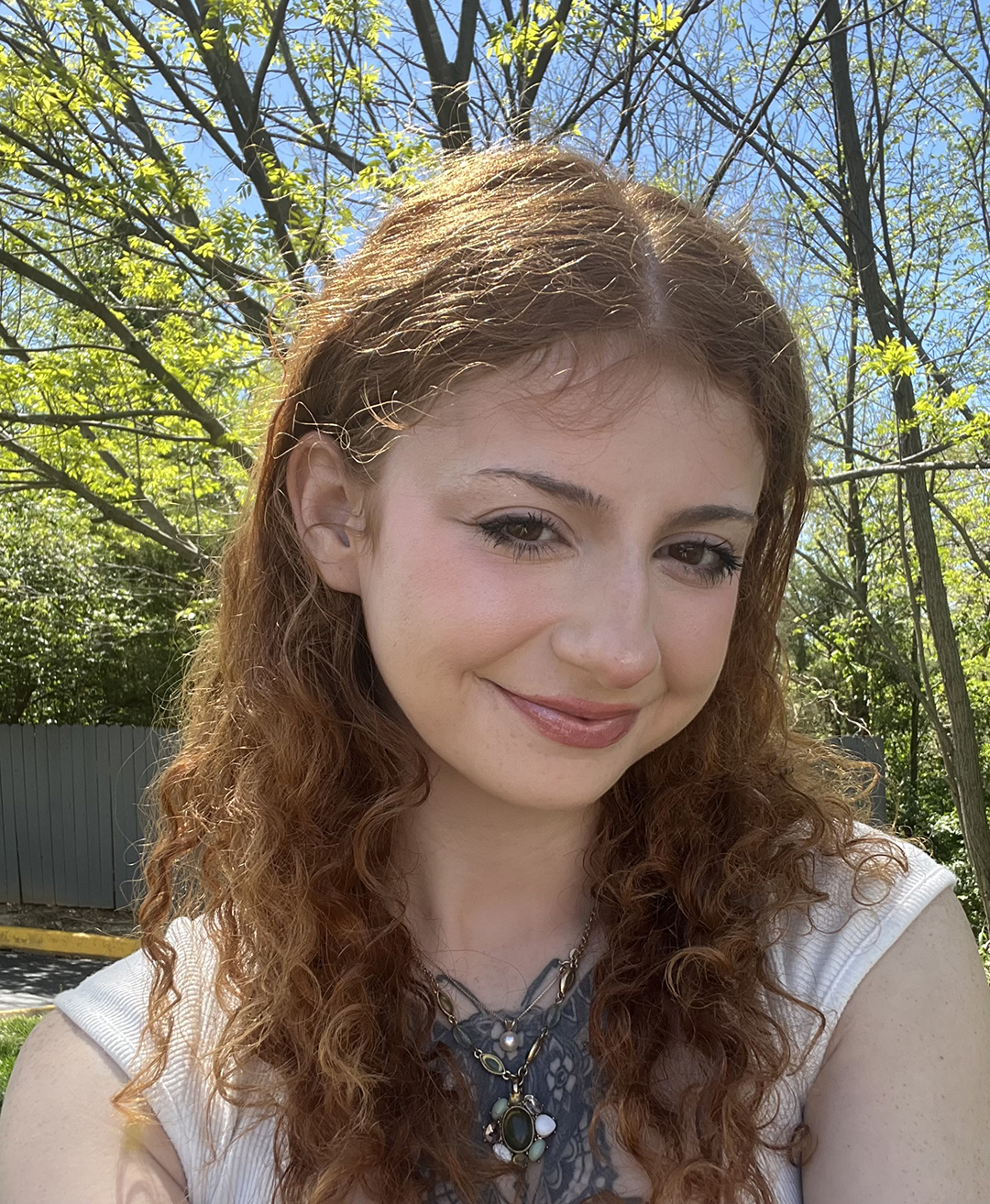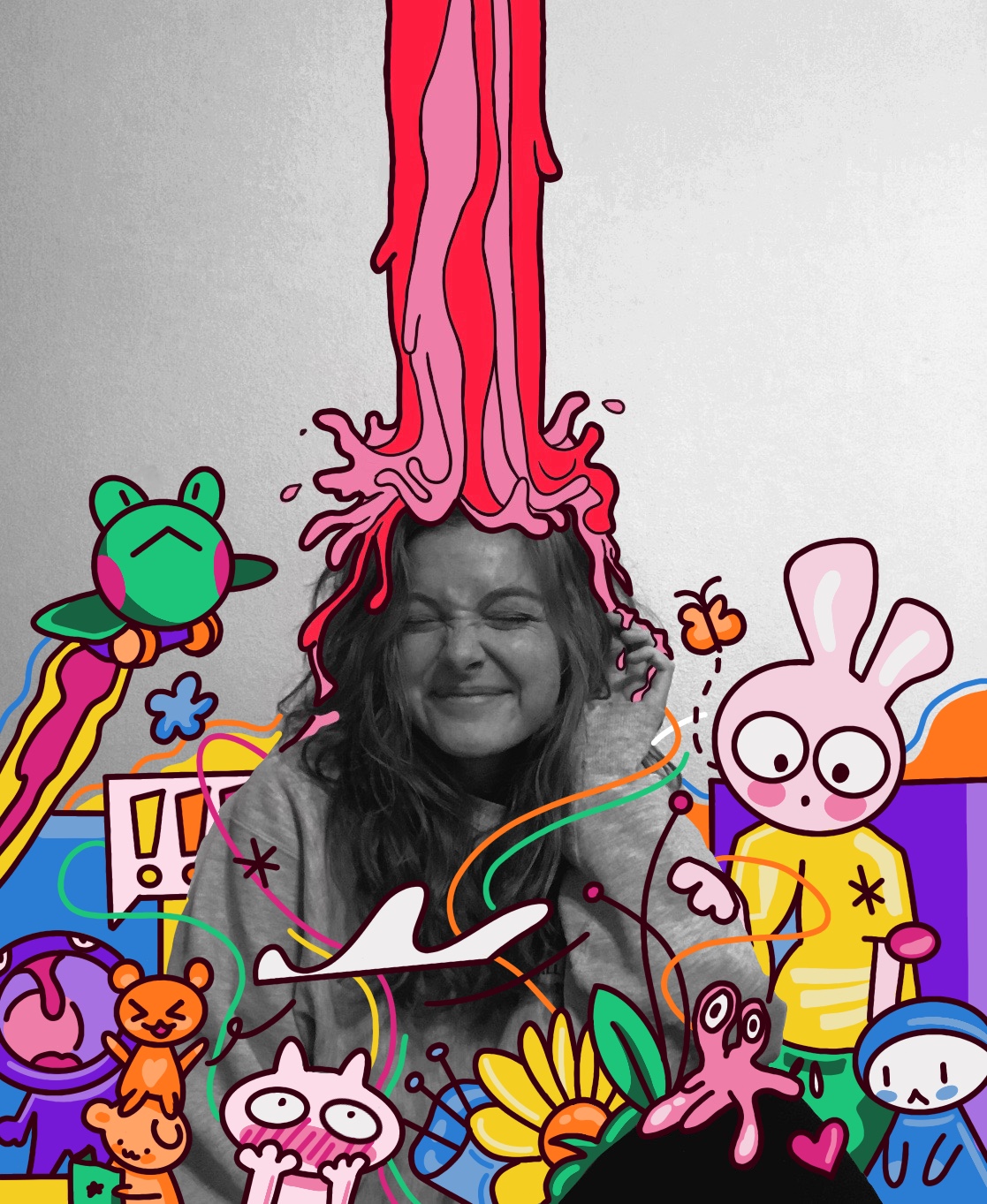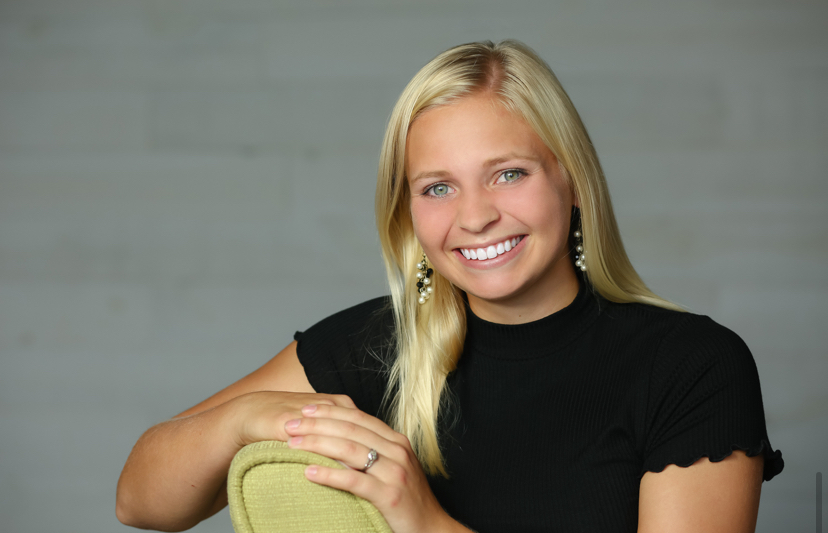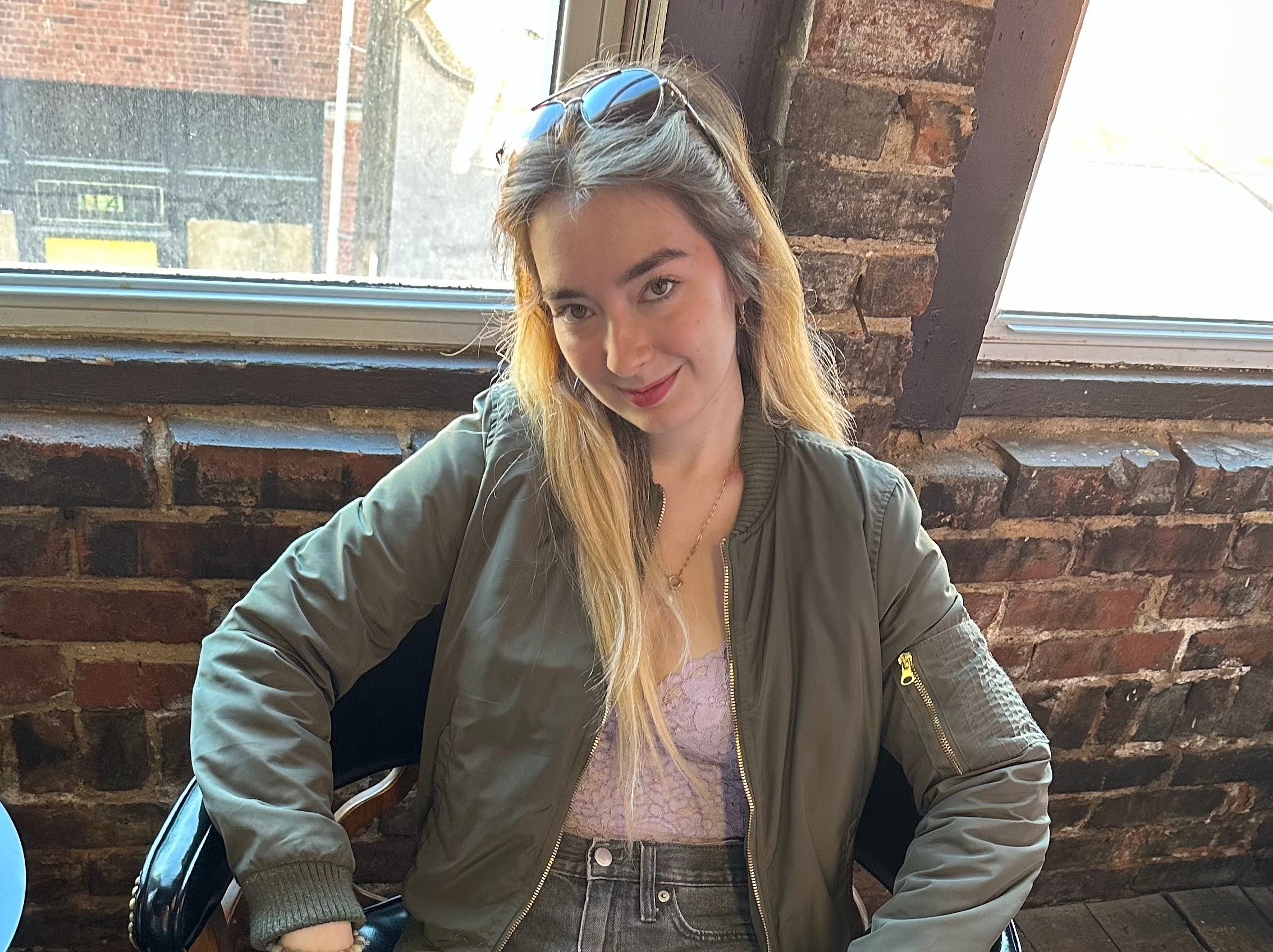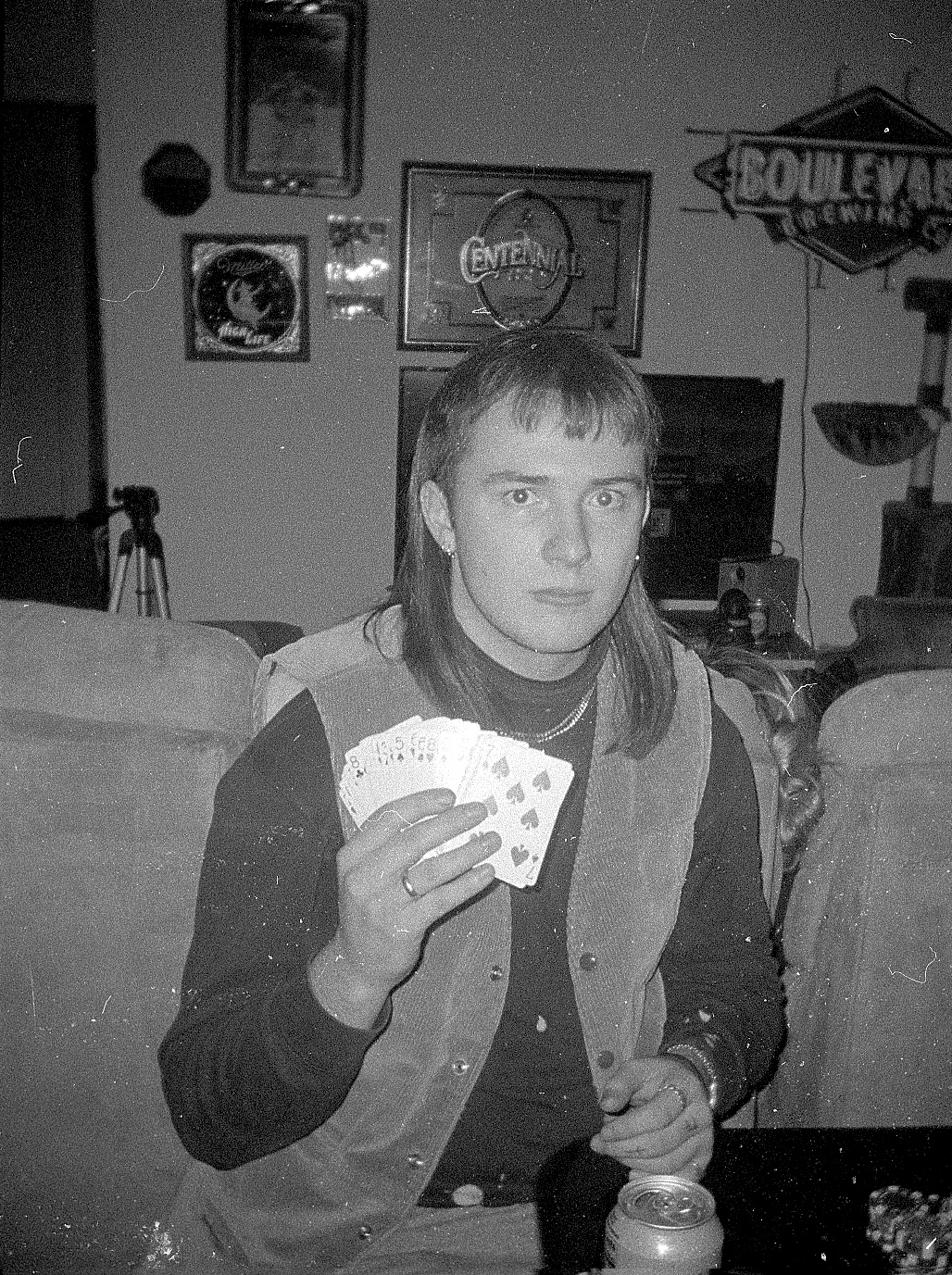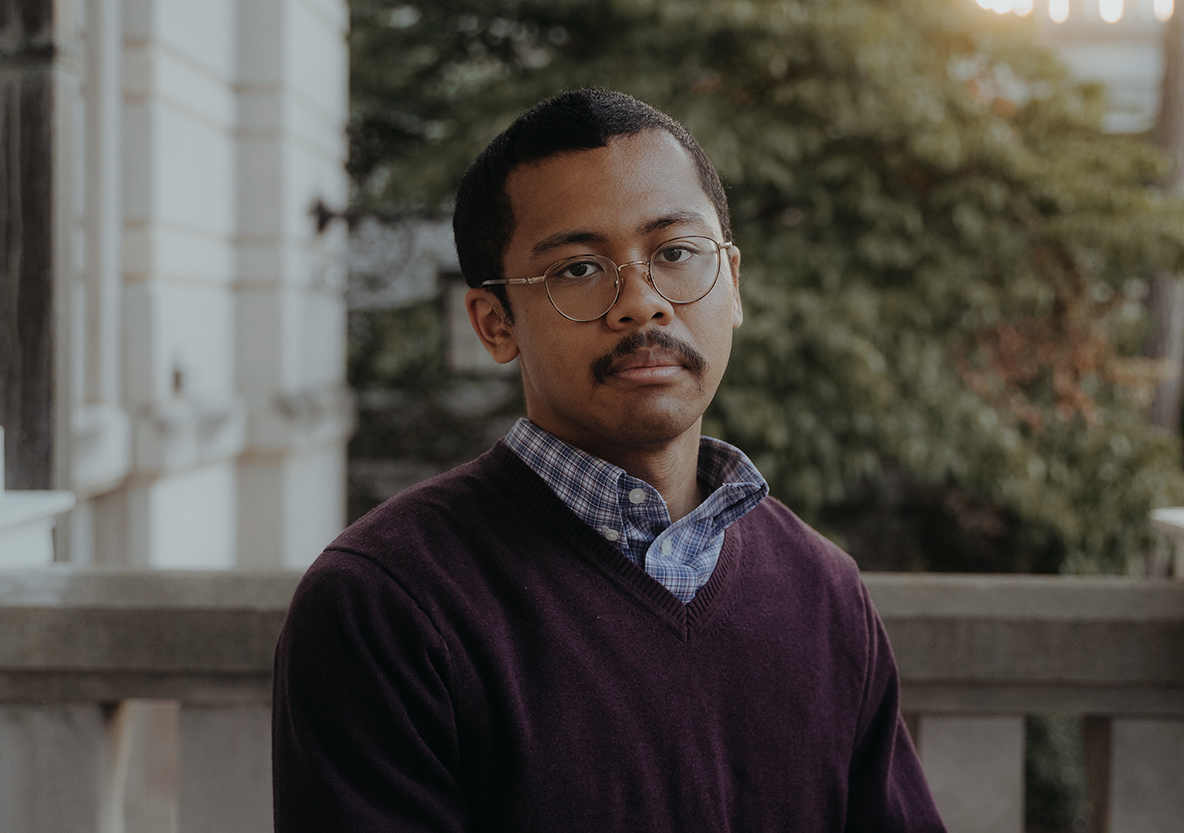2024 Senior Showcase: Nascent Spaces Info
2024 Senior Showcase: Nascent Spaces
On view: April 22 – May 10, 2024
Reception: Thursday, April 25, 5:30-7:30 p.m.
The 2024 Senior Showcase, titled Nascent Spaces, is a culminating exhibit of graduating BA and BFA students in the School of Visual Studies Art Program, and will feature an “art fair” booth style installation in both the Bingham and the Josephine Galleries.
The class of 2024 is a cross section of emergent creatives that has developed their own independent practice during their time at Mizzou and as they continue to work in preparing to enter the professional world where they will continue to forge connections throughout their careers. A radically diverse class, that represents a nascent cohort of powerful storytellers exploring topics such as identity, conflict, and humanity.
For more inforation about the event:
https://visualstudies.missouri.edu/event/2024-senior-showcase-nascent-spaces
Participating artists:
Camilla Almaguer, BA
Statement:
I am a digital comic artist. In my practice I focus on exploring how my characters interact with each other, how they would react to people, and the world around them. The world around us, just like our minds, can be very chaotic. My works aim to be a peaceful escape for the viewers from their overthinking minds. I am inspired by interactions, small moments we experience in life, and the mundane. Life is made up of big moments but it is also the small delicate moments we might not think twice about. My comics and drawings I create work towards portraying many ranges of emotions such as stillness, love, compassion, and peaceful moments.
Fiorella Almaguer, BA
Statement:
I mainly work with comics as a medium, along with digital illustration, focusing on developing a consistent style and creating interesting narratives that captivate its viewers. I investigate and play with many different types of narratives and comic forms, like creating short simple comics, along with creating longer and more developed comics. Through my comics I am able to explore and create vastly different narratives genres, creating fantasy, autobiographical, and informative narratives. My style consists of a warm and bright color palette filled with pinks, blues, and purples, which portrays and emphasizes the fun and magical aspects of my stories.
When I was a child, I was diagnosed with cancer, so during this part of my life, I would spend a lot of time in the hospital. Even though I was very young and some memories of this time are blurred, the comics and illustrated children's books I read, along with the countless drawings I created, made my time in the hospital very light and fun, despite all of the things I had to endure. I was comforted by all of the different forms of art and illustrations around me, being transported to a different world through them. As a comic artist and illustrator, I hope to provide that same warmth and happiness to others, giving them support and a magical escape using the comics and illustrations I create.
Christine Amling, BFA in Ceramics
Statement:
Through the careful and tedious creation of each individual clay part of these ceramic forms, I examine the relationships that develop from the process. The separate coils crafted hold their own individuality but become more powerful when joined together with others. They all bring something new to the full form visually whether they hold a lot of detail, or barely any at all. I really enjoy the process of one small creation being a part of a journey towards a unified ending. This process includes stacking new patterns and designs on top of each other, or attaching one loop to the next, testing its limits. It is an exploration of how one piece can help or hurt the final product, similar to how a food chain or society has individual expectations to keep things going properly. If one part fails, so does the rest. The visible imperfections, diversity, and seams become paramount in understanding the beauty found in joining different elements. It is important that the viewer sees form and function in each piece, but to challenge themselves to stray away from the ideal “practical” function and think more about how each individual part allows these forms to work as a whole.
Natalie Anglen, BFA
Statement:
My art is a personal interpretation of memory. It is not pristinely presented in a gold frame, nor is it a realistic depiction of the world around me; It is merely a representation of the way I perceive the act of recollecting. In my practice, I use nostalgic objects and photographs intermixed with other forms of mixed media to create a metaphorical illusion of childhood, oftentimes with an uncanny and eerie twist.
I attempt to create staged, installation-like set ups of my work, inviting the viewer to get immersed in the artwork, transporting them into the concept. . In my research, I often self-reflect on issues from my childhood, and realize the truth and seriousness of those said hardships, in a way my childhood-self never could. My hope is to reflect on this exact experience, what it feels like to look back on your childhood as an adult, and to depict how different the youthful memory becomes through that lens of self reflection and realization.
Abigail Botts, BA in Art and Psychology
Statement:
I grew up in the city of St. Louis, surrounded by beautiful but sometimes dilapidated brick buildings and lots of color, both natural and artificial. Most of my work is connected to the experience of growing up in the city, where I came to understand at a young age, the tragedy and unfairness that is a part of life. I’ve held the tension of my childhood environment and carried it in different ways, but now my thoughts manifest in my work.
I associate a lot of anxiety with the place I was raised, but my family's home was often a haven. A little farm in the city; we had chickens, a huge garden, and flowers growing all over. I am always intrigued by the nostalgia that tugs at my mind over certain symbols, stories, or objects. These symbols and the color palette of my childhood home/St. Louis brings me enjoyment and I incorporate them into my work. I’m fascinated by bricks and their patterns, the flowers and plants that grow, and the pastel colors of the painted homes. I utilize earthenware in my art because of its connection to brick, and the similarities in the surface, which speak of St. Louis to me.
Gabriel Daugherty, BA in Art and Digital Storytelling
Statement:
Love is my favorite aspect of being alive. While every species feels love to some degree, I find enjoyment in the uniquely human experience of such emotion. It can be the most amazing or the most agonizing thing in your life. This is a concept I explore very deeply through my art. I utilize abstraction and surrealism when exploring the neurological processes that lead to this feeling. There are many different ways to love someone, whether it be a familial love or a romantic relationship. It can also be painful and toxic. Because love lies on a spectrum, so does my art. Visually, I am enamored with the color red. It is powerful, sensual. Red is very telling and I collaborate with it through both the brush and the camera. As a multimedia artist, I often find myself discovering new ways to combine these forms into a singular piece to better represent my relationship to the concept of love. This connection can be seen most strongly through my installation work. I often show experimental films alongside my more traditional pieces to culminate an atmosphere conducive to the complex feelings of love that I aim to portray. At the end of the day, art can be a weapon or a comfort, and I choose both.
Meaghan Fleming, BA in Art and Digital Storytelling
Statement:
My mixed media practice is rooted in trauma and surrounds themes of womanhood, abuse, grief, and childhood. I am interested in sharing both an emotional connection and experience with my viewers and activating a visceral response in which I am able to bring them to feel the narrative within the sculpture in that moment. With storytelling through poetry at the core of my work, I utilize various mediums to create sculptural installations which include painting, drawing, video/audio, ceramics, and projection.
The bones of my sculptural craft are in raw materials such as woodworking, steel bending, and plaster casts. I hope both to encourage my viewers to embrace vulnerability in taking that step first myself. I have been attracted to the portrayals of raw human emotion since I was a young girl, and therefore my work is about crafting the disturbing aspects of life and exploring new methods of representing intangible feelings in physical space.
Lydia France, BFA
Statement:
As a photographer, I draw inspiration from the vibrant worlds of fashion and music production. My work weaves these influences together, offering viewers a glimpse into my artistic perspective with each photograph. From childhood, music has been a driving force in my creative process. I translate the emotions of each song into visual compositions, capturing the essence of the music that inspires me. Many of my photos are titled after the songs that sparked their creation.
Beyond music, neon lights have been a significant part of my artistic style. The bright contrasted influences connect the glamour of the music industry with high fashion, bringing cohesion to my work. The vibrant city aesthetics reflected in neon lights tie together the meanings behind each photograph. In essence, my photography is a balance of music, fashion, and urban allure. My Photographs invite viewers to experience the connection of these influences and immerse themselves in the stories being told.
Sophie Froese, BA in Art and Psychology
Statement:
My art is a method of communication and connection. Bright colors illuminate the naturalistic and anatomical imagery that I use to grab the viewer's attention and instill a message. My work concerns how gender and the body can be manipulated to portray a sense of self or lack thereof. While two-dimensional works like screen prints and paintings contribute to my body of work, soft sculpture acts as a vessel to bring my ideas into a three-dimensional space. I utilize sculptures to foster viewer interaction and allow symbolic representation to become tangible.
The use of textiles, embroidery, and stuffed cloth forms capture a sense of traditional femininity that informs my perspective on gender and identity. Creating sculptures from soft materials and filling them with stuffing allows me to convey a sense of reassurance in the face of discomfort. I primarily work with second-hand and found materials, so the mixed media works I produce are an act of curation as well as an act of creation. I observe fabrics, beads, and trim and allow their qualities to guide my process.
It is my goal as an artist to present my experiences and ideas in a way that is authentic yet accessible. Symbolism in art should not be a barrier, it should be a jumping-off point so other people can relate and expand on the themes at play. My work is a conversation, not a presentation; it is meant to be questioned and expanded upon.
Abby Harpenau, BA
Statement:
As an artist specializing in painting and sculpture, I delve into the realm of surrealism, utilizing a palette of muted tones to evoke a unique sensory experience. My artistic exploration delves into broader themes such as feminism, the dichotomy of industry versus inferiority, and the intricacies of interpersonal relationships. For me, art serves as a vehicle for escapism, providing a cathartic outlet for dealing with mental health. This deeply personal journey finds expression through the surrealistic lens, where the natural world intertwines with the inexplicable.
My hope is that viewers of my work encounter a sensation of edgy comfortability—a subtle unease tempered by familiarity. Through this nuanced interplay, I aim to provoke introspection and evoke emotions that transcend the boundaries of the conventional.
Zekkiah Hird, BFA
Statement:
MY BODY OF WORK ACTS AS A PHYSICAL MANIFESTATION OF HISTORICAL HYPSERSEXUALITY WITHIN GAY CULTURE. UNDERSTANDING THE ROOTS OF THIS CONCEPT STEM LARGELY FROM MALE EMOTIONAL REPRESSION INTERTWINED WITH THE INFLUENCE OF PORNOGRAPHIC MARKETING. THIS IS AN ISSUE THAT SPANS THROUGH THE ENTIRE SPECTRUM, BUT THIS SPECIFIC WORK IS TOLD THROUGH THE LENS OF QUEERNESS. THE PREVALENCE OF THIS CONCEPT IS SUBJECTIVE, BUT MANY SEE IT AS A GROWING ENTITY WITHIN THE COMMUNITY, OR MORE IMPORTANTLY, ACKNOWLEDGE THAT IT HAS ALWAYS EXISTED.
THE SUPPRESSION OF SEXUAL FREEDOM WITHIN GAY MEN HAS SPANNED TIME, AND MARGINALIZATION IN ANY CONTEXT OFTEN LEADS TO HARMFUL PATTERNS. THERE IS OFTEN A SEEKING OF THIS VALIDATION AND ACCEPTANCE THROUGH SEX AND THIS VALIDATION STEMS FROM BOTH EXTERNAL AND INTERNAL HOMOPHOBIA COUPLED WITH THE HISTORICAL OSTRACIZATION FROM SOCIETY. THE FORBIDDEN AND STILL UNLAWFUL EXISTENCE OF QUEER PEOPLE CREATED THE ENTITY OF REPRESSIVE/SUPPRESSIVE LIFESTYLES THAT PERPETUATES SECRECY AND SHAME THAT FURTHER WIDENS THIS VOID OF LOVE. SEXUAL LIBERATION IS NOW CELEBRATED WITHIN THE COMMUNITY, AND THROUGH THE AIDS CRISIS AND NOW COUPLED WITH MANY POST MODERN MEDIUMS LIKE HOOK UP APPS, BAR CULTURE, AND NORMALIZATION OF CASUAL SEX, THE CULTURE HAS ARRIVED HERE. ULTIMATELY, HYPERSEXUALITY WITHIN THIS COMMUNITY IS A COMPLEX PHENOMENON INFLUENCED BY A COMBINATION OF SOCIETAL, CULTURAL, RELIGIOUS AND PERSONAL FACTORS. COUPLED WITH USE OF GREEK/ROMAN SCULPTURE, THE TABOO IS BOTH NAVIGATED AND CHALLENGED TO QUESTION WHAT IS INHERENTLY SEXUAL, AND HOW WE HAVE BEEN PROGRAMMED TO THINK.
THERE IS AN ART TIED TO THE EROTIC, AND THERE IS A PANDERING THOUGHT BETWEEN NAKEDNESS VS THE NUDE. WHILE A CONVERSATION, MY WORK IS SOMEWHAT OF A CRITIQUE, BUT ALSO THROUGH THE INSERTION OF MYSELF, PARTICIPATION. USING MANY MEDIUMS: COLLAGE, DIGITIZED FILM, 3D ARRANGEMENTS, AND DIGITAL MANIPULATION OF CURATED PRINT MEDIA, MY WORK SERVES AS AN EXPLORATION OF MASCULINITY, SEXUALITY, AND SOCIETY.
Elly Hood, BA
Statement:
There is beauty in mundanity and I believe it is important to appreciate it. In my work I picture things that are seen in everyday life to conjure up feelings and emotions that the viewer is greatly familiar with. Nostalgia is a feeling I attempt to radiate with graphite or paint, on paper or canvas, by showing the simplest object. I've always felt slightly confused as an artist or even just as a person, so I show things in my work that I know to be true. I find comfort in everyday things that are shared with all the people I love. I find comfort in familial relationships.
Showing everyday mundane objects reminds me that even though things change so often there are things, like memories, that will remain constant. When using paint I like to create texture with brushstrokes and excess paint. The texture that can be created with paint gives a sense of reality to me that is more than a photograph could portray. Touching something forces a connection and forces a feeling. Although I would hope people feel the sense of nostalgia and familiarity in my work, I can not control how people will interpret it. I can only control what I feel when making it, and I feel at home and at peace.
Felix Hook, BA in Art and Digital Storytelling
Statment:
Through my work, I explore and attempt to work through the multifaceted representations of wolves in folklore across cultures and the implications of these narratives on our ecological consciousness. This work is a reflective inquiry into how wolves, as symbols, navigate the dichotomy between the revered and the reviled, mirroring the broader ecological impact of human actions and the Euro-centric views that have historically dominated our interaction with the natural world.
At the heart of my artistic exploration is a focus on the intersection of cultural perception and ecological action, particularly the concept of wolf reintroduction in regions where they were once eradicated ultimately as a result of colonialism and human activity, with this destruction and its still-ongoing restoration efforts spanning across many years. Through this lens, my work aims to engage viewers in a visual and temporal journey, situating the discourse in a space where past actions, future possibilities, and different meanings concerning the same topic, the gray wolf and wolves in general, converge.
The content of this work is inspired by two different and general ideas about wolves. Many North American tribes regard wolves with significant notoriety and cultural weight, treating them with both respect and caution. When white European settlers began to colonize North America, they brought with them views that were wildly different from that of the tribes that were already living there. To most, the wildlife as a whole and therefore wolves were another thing to be exploited and put in check for and by humans. There are many stories and depictions of wolves produced with these viewpoints at their core which depict the creature as a harbinger of death, destruction, even too associating it with lustfulness.
My artistic process and the form of my work are grounded in a commitment to exploring these themes through a blend of traditional and experimental techniques, with my approach to each figure being made up of both sketchy lines and highly-rendered portions all the same, adding a suggested complexity to our understanding of the signs and symbols around us; things that are neutral and hold lots of human-ascribed importance, contexts, and connotations. Whether more abstracted or figurative, each piece is an invitation to engage with the underlying questions of how we perceive, represent, and interact with the natural world.
Malik Ibdah, BFA in Ceramics
Statement:
In hermetic alchemy, the concept of a "Union of Opposites" is the belief that all things are dual; everything has its poles, and everything has its pair of opposites. Like and unlike are the same, opposites are identical in nature but different in degree. Therefore, all things in the universe exist as one whole, and seemingly polar opposites are actually one in the same. I apply this concept to the ceramic process, viewing it as its own union of opposites between the natural and artificial. Clay is a natural, organic material taken from the earth, and is intentionally manipulated to build a man-made artificial object, in the form of a vessel intended for functional use.
Within my own work, I represent artificial and natural dual aspects of the ceramic process by creating functional, structured vessels, which are then altered from the inside to incorporate organic, textured shapes in the form. The organic and artificial aspects are unified within the form, existing as different expressions of the same material. The seemingly everyday vessels appear to transform and morph, and the fixed form of the vessel becomes volatile. The inanimate becomes animated as if the form itself is coming alive, transmuting from one form into another.
Esra Jackson, BA in English and Art
Statement:
I consider myself to be, first and foremost, a poet. I am interested in utilizing and manipulating the language of ‘things,’ the meanings their shapes, textures, and connotations carry, altering their context to fit my artistic objective. I am drawn to found materials, of all kinds; I often say that I only create art out of that which already exists, whether that be in concept or physical material, including words, the environment around me, keepsakes, etc.
With these found materials, I seek to explore the body (or lack thereof), in all its facets: The way the body can obscure, create, and enhance identity; the effect of an absent body and that which is made to stand in for it; the experience of having a body and all the baggage that comes with; the integrity of the body. This focus on the body originates from my mother’s sudden death when I was fourteen.
Left without any tools or people I trusted to help me through the depth of my grief, I found myself emotionally paralyzed and disconnected from both my body and hers, moving listlessly through the motions of living (or rather, surviving). As of recent, I find myself in a place where I feel safe to embrace vulnerability and feeling, willing to actually bear her absence, and yet, my grief hides from me. Much of my work is an effort to reconnect to that lost grief and to my mother, to tangibly record their fleeting presences.
This practice feels deeply ritualistic, leading to my continued use of religious imagery. I grew up in evangelical Christianity, an experience which alienated me from my body and my desires; I have since left those beliefs behind, namely as a result of being unable to reconcile my queerness and transness, integral redefinitions that I deeply cherish, with that which I was taught. I now repurpose these beliefs and the imagery associated with them, much like found materials, transforming them according to my own will. Through reshaping the sanctity of this imagery, I challenge dominant misogynist and anti-queer/trans religious doctrines concerning the body, reimagined narratives that can thus become sites of reclamation instead of condemnation. A framework that once felt so limiting and unapproachable, now becomes simply another language with which to express myself.
Madolyn Jewell, BFA
Statement:
Images are a powerful form of communication, and a great source of emotional interest- throughout my life, I have always been drawn to collections of family photo albums and iPhone camera rolls. Through referencing already made photographs, my work acts as a sort of collaborative process with myself and the person behind the camera in which I recontextualize these images in a drawing or painting setting, emphasizing areas of interest and creating a new purpose for the image.
The work I make is interested in exploring the complexities of human emotions and relationships through this lens of photography and image making. The physical act of looking through images and rendering the people close to me is one of tenderness- I find my own compassion grows as I spend more time with a subject, contemplating the many adversities they may have experienced. I am seeking to understand that the people closest to me carry the same grief, trauma, and complex emotions as I do.
Capturing a wide range of emotions allows me to show the many different facets of a person and how complicated and difficult to understand they can be. Through using visual language as a tool for growing empathy and creating vulnerability, I hope to invite viewers to connect with the subject matter in the pieces and feel introspection towards their own lives.
Cierra Logan, BA in Art and Art History
Statement:
In my artistic practice, I explore both printmaking and textiles, employing representational and symbolic figures to confront personal dilemmas while maintaining a certain ambiguity that allows for broader connections to be forged. As a child without a father and a girl determined to grow up too fast, I now question what it means to be a woman in today's world. My creations serve as a convergence point where experimental techniques intersect with intimate narratives, probing the societal constructs and conventions surrounding femininity and sexual autonomy.
Through my work, I aim to spark contemplation within viewers, urging them to scrutinize their own lived experiences. With a keen eye for detail and a passion for pushing the boundaries of traditional mediums, I use printmaking techniques to evoke a sense of delicate intimacy and thought-provoking complexity blurring boundaries between space and representational figures. Through intricate layers of textures, colors, and compositions, employing female icons and symbols and reappropriating masculine ideas of the female condition I want to investigate the nuances of the feminine experience both on an individual and collective level.
Ultimately, I intend to invite viewers to engage in a dialogue with the societal constructs that dictate expectations surrounding the female body and femininity. By delving into these themes with depth and sensitivity, I aspire to create a space for reflection and introspection, where viewers can navigate their relationships with societal norms and their personal identities.
GNGR (Olivia Whitesell), BA in Digital Storytelling
Statement:
I am GNGR, a seasoned digital media artist with a specialization in character design and animation. My artistic journey has been heavily influenced by early encounters with digital media and street art, resulting in work that seamlessly blends urban aesthetics with a vibrant, whimsical energy. Drawing inspiration from the raw essence of urban subculture, my creations not only demonstrate proficiency in the digital realm but also embody a rebellious ethos.
Each piece serves as a deliberate exploration, challenging conventional artistic norms and drawing viewers into a captivating world where creativity reigns supreme. My approach as an artist is defined by a commitment to marrying technical expertise with a rebellious spirit. I extend an invitation to audiences to embark on a visual journey that celebrates boundless creativity and imagination, while simultaneously pushing the boundaries of artistic expression with professionalism and dedication.
Bailey Neighbor, BA in Art and Psychology
Statement:
I am a ceramics based artist that works to portray intangible ideas and experiences through the malleable medium of clay. As a ceramic artist immersed in both academic realms of art and life sciences, my work serves as a bridge between these seemingly disparate fields.Through my work I strive to communicate both universal and unique human experiences.
Being outdoors and the experiences that we create while in mother nature is a feeling many people can relate to.Nature is a significant source of inspiration for me, evident in both my glaze work and subject choices. Earthy tones and textured surfaces mimic the organic forms, such as wood, found in the natural world, inviting viewers to reconnect with the beauty that surrounds them. My use of form and texture challenges viewers to perceive the inherent beauty in the world around them, encouraging a deeper appreciation for the environment.
Being a woman in today's society is an experience that about only half the population can relate to. I employ sculpture and functional/sculptural pieces to explore themes of empowerment, resilience, and self-discovery. Through my art, I seek to shed light on the complexities of gender dynamics and the importance of mental well-being in navigating societal pressuresThrough my works I strive to bring universal naturalistic ideas indoors and unique human experiences out into the public realm for discussion.Ultimately, my ceramic creations serve as a medium for personal expression and social commentary, inviting viewers to reflect on their own experiences and perceptions of the world.
Bekah Selkoe, BA
Statement:
I first avoided making art characterized as feminine. I didn’t want to be confined to a space that I defined as femininity. Defining certain concepts solely as feminine, or as not feminine was too subjective and entirely too restrictive. Many behaviors labeled as feminine are simply human behaviors that are unjustly categorized by society. My recent work is about femininity, although it would be more accurate to say that it is about personal experience. My personal experience of self image, and perceived ‘feminine’ responsibilities.
In recent work I choose to highlight the problems with concepts such as Pink Tax, and the issues of body rights; such as in the criminalization of abortion in the state of Missouri. While my work is interdisciplinary, there is a high emphasis on the printmaking process. Printmaking and the printed word were the catalysts to the early widespread of information. First starting with the bible, and then moving out to newspapers, and other means of printed matter. No one else will advocate for you; I therefore advocate for communication in art: I express my experiences.
Gage Shrout, BFA in Photography
Statement:
In less than a quarter of a second a photograph can capture the inner and outer life of a person. Through my work I delve into a web of emotions that arise from navigating relationships tainted by trauma and dysfunction. My instillation becomes a testament of the interconnectedness of my individual experiences, showing how the torment of my past will reverberate into present moments. Capturing scenes of intimacy through gatherings and moments of uninhibited indulgence.
My work confronts the viewer asking the question of agency, and who is granted to document certain situations that we place ourselves in. Beneath the photos lies a documented exploitation of emotions that are a part of a long legacy that I have inherited, I strive to forge my own path towards self-discovery and healing. I invite viewers to confront their own preconceptions and assumptions about drug use, friendship, and who it is that gets to tell the story of oneself. I hope to foster a greater use of empathy and understanding for the multifaced nature of the human experience.
Alonzo Williams, BFA in Drawing
Statement:
As a comic artist and illustrator, I have always been fascinated by the works of draftsmen, animators, and pen artists. After all, as a kid, cartoons and comics served as my main source of entertainment. The design of contours, accumulation of lines, and realization of form developed within me an infatuation for repetition and technical rigor. Like my piano practice, I treat drawing like a sport. Mistakes inspire further attempts to improve my speed, expand my repertoire, and memorize spatial construction and graphic design principles.
This is what makes my practice enjoyable, as there is always something new to reach for and something old to hone. As such, repetition becomes a significant part of my art practice. Whether it takes the form of a school of writhing organic masses or an entanglement of cables within fictional technology, repeated motifs help reinforce a feeling of practice and training. Comic books take this idea even further, as characters and environments need to be drawn and redrawn to emulate the flow of a linear narrative. This flow helps me better understand my identity, chiefly my Christian faith background, through the repeated production of reference. I view my walk in faith as a journey of continual reproval and growth, and thus my drawing practice mirrors such philosophy.

